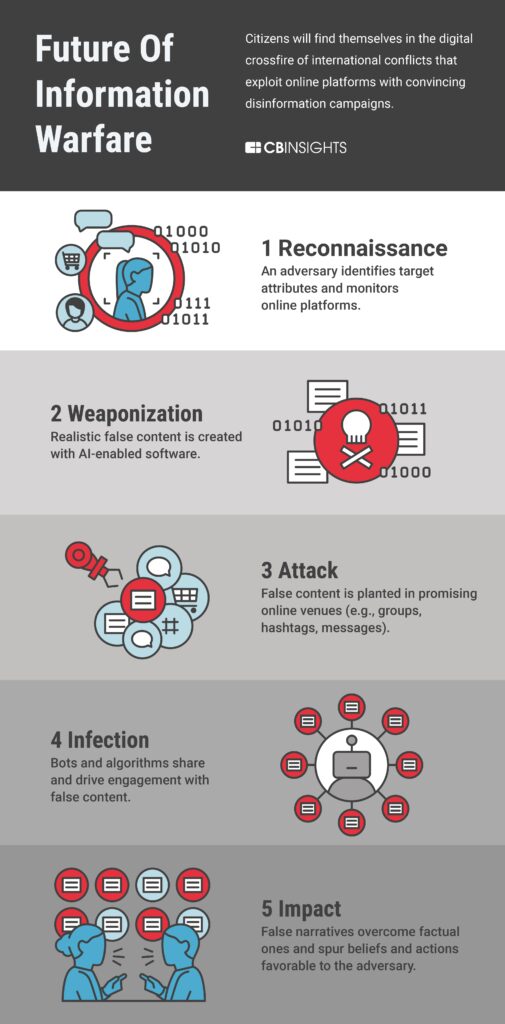The rapid advancements in technology have changed the face of modern warfare, with cyber warfare becoming a critical component. This article discusses the weaponization of technology and the importance of cybersecurity in modern warfare. It explores the evolution of cyber warfare, the use of technological capabilities in conducting warfare, and the role of cybersecurity in protecting military assets, defending critical infrastructures, and securing communication networks. The article also highlights emerging threats, the need for international collaboration, and the importance of investing in cybersecurity to combat cyber threats effectively. In conclusion, the article emphasizes the necessity of cybersecurity in the face of the weaponization of technology in modern warfare.
The Weaponization of Technology: Cybersecurity and Modern Warfare
Introduction
The rapid advancements in technology have significantly altered the landscape of modern warfare. While traditional weapons like guns and missiles continue to be important, the increasing reliance on technology has given rise to a new type of warfare – cyber warfare. In this article, we will explore the weaponization of technology, focusing on the critical role of cybersecurity in modern warfare.
Understanding Cybersecurity
Cybersecurity involves protecting computer systems, networks, and data from unauthorized access or attacks. In the context of modern warfare, cybersecurity is crucial as it ensures the protection of military assets, critical infrastructures, communication networks, and sensitive information.
The Evolution of Cyber Warfare
Initially, the idea of cyber warfare seemed far-fetched, more suitable for science fiction novels than reality. However, as technology advanced, so did the threats that nations faced in the cyber domain. Cyber warfare has now become an integral part of military strategies for both offensive and defensive purposes.
Weaponization of Technology
The weaponization of technology refers to the use of technological capabilities as means of conducting warfare. This includes the development and deployment of offensive cyber weapons to disrupt or destroy an adversary’s critical infrastructure, communication networks, or even destabilize governments. Moreover, traditional weapons are now equipped with technology, making them more lethal and accurate.
Cybersecurity in Modern Warfare
Protecting Military Assets
With the increasing reliance on technology, military assets have become vulnerable to cyber-attacks. Cybersecurity measures are essential to safeguard military systems, such as command and control systems, aircraft, drones, and even nuclear weapons. Failure to protect these assets can have catastrophic consequences.
Defending Critical Infrastructures
Critical infrastructures, including power plants, transportation networks, and water supply systems, are prime targets in modern warfare. By disrupting these infrastructures through cyber-attacks, nations can severely cripple their enemies without engaging in direct military confrontation. Robust cybersecurity measures are crucial to defend against such attacks and maintain the stability of essential services.
Securing Communication Networks
Secure communication is a fundamental requirement in military operations. Cybersecurity ensures the protection of sensitive military information exchanged via communication networks. Any vulnerability in these networks could lead to espionage, unauthorized access, or even the dissemination of misleading information. By implementing strong encryption, firewalls, and other cybersecurity measures, militaries can ensure the confidentiality and integrity of their communications.
The Future of Cybersecurity and Warfare
Emerging Threats
As technology continues to advance, new threats will emerge. The rise of artificial intelligence (AI) and the Internet of Things (IoT) introduces new vulnerabilities that adversaries can exploit. Additionally, the potential utilization of malware and ransomware in warfare poses significant challenges for cybersecurity experts.
The Need for International Collaboration
In the digital era, cyber-attacks can originate from anywhere in the world, making global collaboration crucial. International agreements, information sharing, joint exercises, and cooperation among nations are vital to combat cyber threats effectively. The establishment of cybersecurity norms and protocols can help mitigate the risks associated with the weaponization of technology.
Investing in Cybersecurity
Governments and organizations must prioritize investing in cybersecurity research, training, and infrastructure. Cybersecurity professionals play a vital role in countering cyber threats and ensuring the resilience of military systems and critical infrastructures.
Conclusion
Technology has become an integral part of modern warfare, and with it comes the weaponization of technology. Cybersecurity plays a critical role in protecting military assets, defending critical infrastructures, and securing communication networks. As we face the challenges of an increasingly connected world, investing in cybersecurity and fostering international collaboration are paramount to safeguard against cyber threats in modern warfare.
